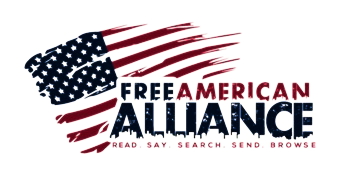German lawmaker’s aide arrested on suspicion of spying for China in European Parliament
A man working for a German far-right lawmaker in the European Parliament was arrested for...
Read More
A man working for a German far-right lawmaker in the European Parliament was arrested for...
Read MoreCNN’s fixation on disparaging former President Donald Trump is standard fare, especially with the November election fast approaching, but network host Erin Burnett took that to a whole different level on Monday when she set her...
Read MoreThe Biden administration has committed to radical ideology over innovation, choosing to weaponize...
Read MorePolice in Chicago shared surveillance images of a suspect in connection to the murder of Officer...
Read MoreA West Virginia hospital has confirmed the first known case of measles in the state since 2009,...
Read MoreU.S. and South Korean officials are meeting in Hawaii this week to discuss sharing the cost of...
Read MoreLeBron James was upset with NBA officials, specifically at the replay center, after the Denver...
Read MorePolice in Oregon have arrested a suspect after he allegedly was captured on a doorbell camera...
Read MoreDonald Trump has challenged the priorities of the prosecutor in his hush money case by...
Read MoreDonald Trump has challenged the priorities of the prosecutor in his hush money case by...
Read MoreLast week, the Biden administration released a series of new rules that, among other things, will...
Read MoreSubscribe to Louder with Crowder on Rumble! Download the app on Apple and Google Play.It takes a...
Read MoreAfter an anti-Israel protest escalated at New York University on Monday – requiring city police...
Read More“I condemn the antisemitic protests …” Joe Biden told reporters after days of anti-Jewish...
Read MoreThe Biden administration has initiated an expedited environmental review for the Rhyolite Ridge...
Read MoreWhile artificial intelligence represents a significant technological advancement in various...
Read MoreWhile artificial intelligence represents a significant technological advancement in various...
Read MoreApril 23 (Reuters) – Israel bombarded northern Gaza overnight in some of the heaviest...
Read More“What we’ve done well in the past few years is we’ve just focused on ourselves,...
Read More

Changes are coming to CauseACTION as we roll out a Suite of Social Media tools dedicated to common sense, Conservative and Independent Americans, and the uncensored content from over 150 Conservative Publishers, Causes, Advocacies, and Nonprofits with live streaming of Top 50 Conservative Radio Talk Shows and Podcasts... all in one place, without ads, or any distractions.
CauseACTION and Constitutionally-grounded web experts from Silicon Valley to New England have come together to deliver to you the "Free American Alliance"... the largest pool of Conservative news, opinion, and both video and audio content (FreeREAD, FreeTALK, FreeWATCH), the FreeSAY social exchange platform, and the only untracked, uncensored search engine with its own independently-owned, Web Index, FreeSEARCH.
If you would like to learn more about FreeSEARCH and a lot more of what really goes on behind the scenes in Silicon Valley, then listen to Rich Lepoutre and Steve Marshall's post DuckDuckGo Debacle here
The Freedom to Search With Zero tracking, Censorship or Steering of Results
Listen To Over 100 Of Your Favorite Conservative Talk Shows And Podcasts.
Watch Your Favorite Conseervative Video Channels And That Incudes The Hundreds Of Conservative YouTube Videos That Have Been Banned By Google.
